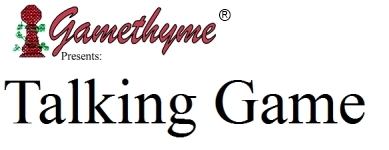My good friend Wade Rockett visited over the weekend and, as we tend to do, we spent some time talking about games. At one point, he asked me if a game was any good - and I answered (as I often do) with, "It's fun."
He pressed me, then. "Have you played, it?"
All too often, I haven't played a game with other folks. But that doesn't mean I don't know it's going to be fun.
In my 20+ years of gaming, I've played Gumshoe and Fate and Fudge and Cortex. I've played AD&D and d20 and 4e and GURPS and L5R and 7th Sea. I've played ORE and XPG and 1PG. I've played BRP and Savage Worlds and 13th Age and Gamma World and Alternity. I've played Rifts and TMNT and FASERIP and Ars Magica. And Paranoia and Storyteller and Burning Wheel and d6 and Omega. I've played Shadowrun and FASA's Star Trek and Last Unicorn's Star Trek and Decipher's Star Trek. I've played Cthulhutech and Prime Directive and Rolemaster. I've played Chill and Underground and Unknown Armies and Tri-Stat. And more - these are just what I can remember off the top of my head.
I've read more than that. A lot more. My shelves are filled with game books.
And here's the biggest secret of all games:
You will rarely find the fun in the rulebook. The fun comes from interacting with your friends.
Don't get me wrong: You will often find fun in the rulebooks, but it's not the same fun you'll get from playing the game. And the fun of playing the game has nothing to do with the rulebook. This seems to go double for games which are part of the "Old School Renaissance," in large part because the old school rulebooks are written much like the wargames from which they evolved.
One of the single most fun games I have ever had the opportunity to play was a Rifts game. Yes, that Rifts. The Palladium Books/Kevin Sembieda one. Because the group was that good.
I know my groups, too. I know that, for example, Apocalypse World will be awkward with one group because of the sex moves - even if they're never used, their very existence will make the game uncomfortable for the players. I know that Microscope will go over very well with one group and will fall flat with another.
You'll note that I said above that I haven't played a game "with other folks." I will often, while reading, try to figure out what sort of adventures I can run in that game. Or what characters I would play, were I a player. I'll also dummy up some characters and run some sample combats and test-drive the system in other ways, as well. It tells me how mathy the game is, which can be an important factor in the fun calculations for some players. For example, I don't think my wife would like Rolemaster. Or GURPS. Not at first - maybe after a while, she would grow to enjoy them, but Stephanie doesn't enjoy math. And that is not due to inability, either. It also tells me if there are things I'm going to want to house rule right off the bat because they seem terribly broken (or, for that matter, completely useless).
Either way, a good read-through can tell me if a game is going to be fun for me. Generating a few characters and running a few encounters for those characters tell me which of my group members will appreciate the game and which will not. And which might enjoy it after some time.
Next week, I'm going to talk about my That Game.

No comments:
Post a Comment